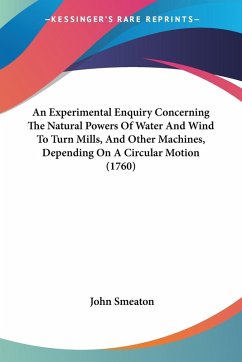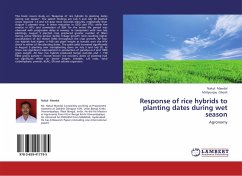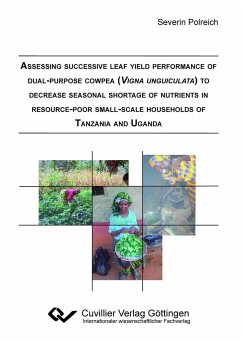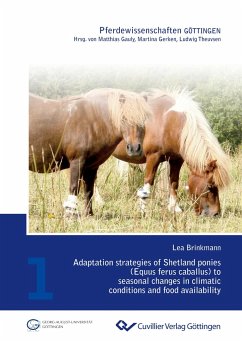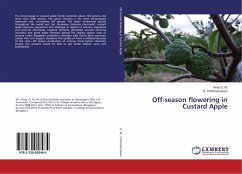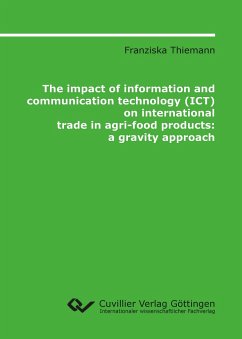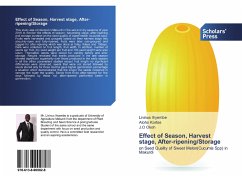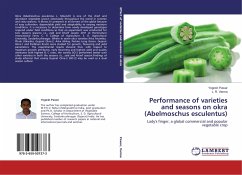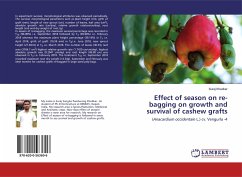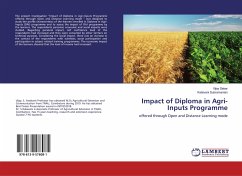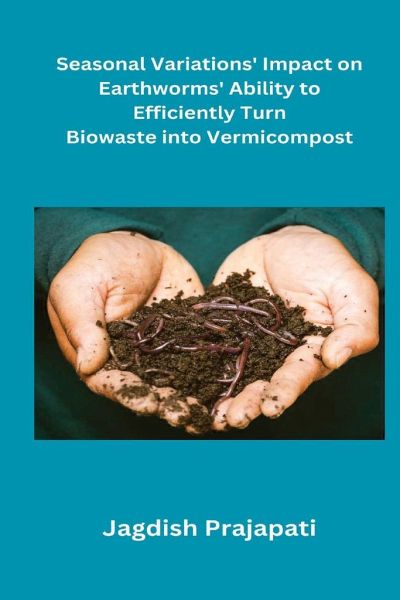
Seasonal Variations' Impact on Earthworms' Ability to Turn Biowaste into Vermicompost
Versandkostenfrei!
Versandfertig in 1-2 Wochen
23,99 €
inkl. MwSt.

PAYBACK Punkte
12 °P sammeln!
One of the major reasons for decline in agriculture is the large-scale nutrient depletion through crop harvest and low level of replenishments through inadequate nutrient use causing negative nutrient balance in the system. Deterioration in the physical and biological properties of soil is further with holding crop yield. At present, Indian agriculture is facing with a major problem of declining factor productivity. It needed immediate remedial measures to ensure food security at present and in the coming years for the long time. To achieve the goal of improving agricultural growth rate, we ha...
One of the major reasons for decline in agriculture is the large-scale nutrient depletion through crop harvest and low level of replenishments through inadequate nutrient use causing negative nutrient balance in the system. Deterioration in the physical and biological properties of soil is further with holding crop yield. At present, Indian agriculture is facing with a major problem of declining factor productivity. It needed immediate remedial measures to ensure food security at present and in the coming years for the long time. To achieve the goal of improving agricultural growth rate, we have to stream line the practices of nutrient management, which require intensive forms of soil and crop which will increase the efficiency of production inputs and protect the environment as well as soil health. Moreover, during the past several decades' agriculture development mainly focused on short term gains in productivity and profitability which has caused several damage to soil fertility, health and environment. These changes motivated to change in farming practices. Organic farming seems to be a viable alternative because it enable the soil, strengthen the natural resource base and sustains the biological production at different levels. However, it requires large-scale organic manures and bio fertilizers. Acute shortage of conventional bulky organic manures like compost, FYM, dung, oil cakes etc. also necessitates the exploitation of other organic sources. Weeds are plant which are unwanted to crop and other livings, they are found in abundant quantity in crop fields, non-cropped areas, as well as in water bodies. These weeds are rich in organic matter and contain handsome quantity of plant nutrients. Though, the much attention has not been paid in order to harness the potential of these weeds and wastes generation from agriculture farm as a source of organic manure. Obnoxious weed viz. Ipomea, Waterhyacinth, Parthenium etc. are growing and spreading at alarming rate under non cropped and aquatic ecology. They are nuisance at their growing place and have not any economic importance in our livelihood.



